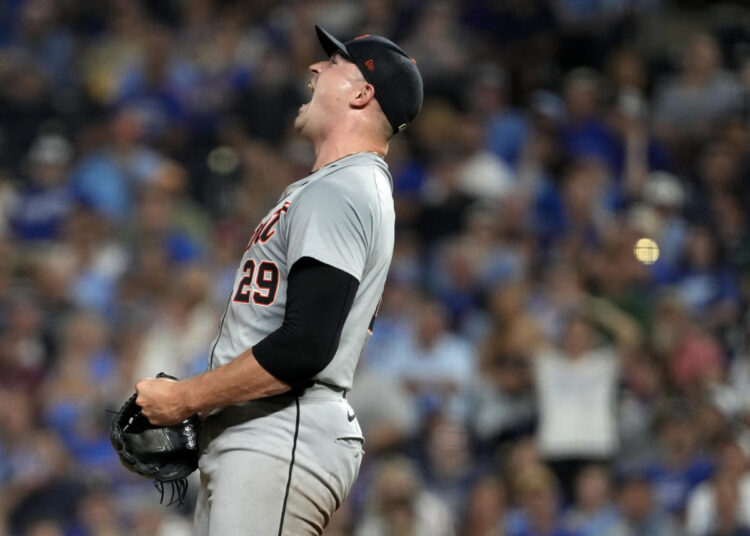For the first time in many years, the 2024 fantasy baseball season felt somewhat normal. Sure, many players took major steps forward and others really let their managers down. That’s simply the nature of sports. But the overall landscape of Major League Baseball this year, in key areas such as home runs, stolen bases, innings pitched and bullpen usage, looked mostly as it did the previous year, which we haven’t been able to say in over half a decade.
Because the fantasy baseball landscape has more overall stability, we can get away from looking at the overall volume of production in each category and instead focus on the lessons that will make us better fantasy managers overall. Here are some key tidbits to keep in mind through the offseason.
Regression is real
Entering the season, there seemed to be little doubt that drafting multiple players from the Braves lineup would lead to fantasy glory. After all, the club was coming off a season in which they scored 41 more runs than the second-place Dodgers and were more than 100 runs ahead of 26 teams.
Unfortunately, the powers of regression are real, and few teams enjoy the perfect combination of good health and strong performances in two consecutive seasons. In fact, the last team to lead the majors in runs scored two years in a row were the 2009-10 New York Yankees.
Atlanta took a mighty tumble and sits in the bottom half of teams in runs scored. Ronald Acuña Jr., Matt Olson, Ozzie Albies, Michael Harris II and Austin Riley were all massive disappointments after being selected in the initial three rounds of drafts. Among that group, only Olson managed to stay off the IL.
As the old saying goes, when something seems too good to be true, it probably is. And looking forward, this lesson can be applied to the D-backs, who are far ahead of every other team in runs scored. Arizona hitters cannot match the 2023 Braves in terms of eye-popping individual totals, but their key players, such as Ketel Marte, Corbin Carroll and Eugenio Suárez are likely to regress next year.
Positive regression is also real
On the other end of the spectrum, the Oakland A’s were a good reminder that things are rarely as bad as they seem.
Oakland finished 2023 last in runs scored. In fact, it wasn’t even close, as the A’s scored 56 fewer runs than the 29th place White Sox. Many fantasy managers responded to Oakland’s recent offensive debacle by swearing off their players for the 2024 season, while those who kept an open mind reaped the benefits. Brent Rooker went undrafted in most leagues and will finish the year with roughly 40 homers and 110 RBI. Shea Langeliers ranks second in homers and sixth in RBI among fantasy catchers. Lawrence Butler has been one of the best waiver-wire gems of the second half, and JJ Bleday has reached the 20-homer plateau while scoring over 70 runs.
Looking ahead, the easy answer in 2025 drafts will be to ignore a White Sox offense that lagged far behind the other 29 teams this season. But there is a good chance that history repeats itself and we see a combination of prospects such as Colson Montgomery and veterans like Luis Robert Jr. exceed expectations next year.
And of course, the concept of positive regression doesn’t only apply to the team who finishes last in runs scored. Other squads near the bottom, such as the Rays, Marlins and Angels, could improve next year.
Starters aren’t separating from the pack
Experienced fantasy managers must be asking where all the aces have gone. After all, pitchers such as Jacob deGrom, Max Scherzer and Clayton Kershaw posted incredible stat lines in their prime that blew away the competition. But in 2024, a good pitcher was just that — a good pitcher. There are three starters who have separated from the pack — Tarik Skubal, Chris Sale and Zack Wheeler. All three are having excellent seasons, but their numbers do not rival some of the stat lines we saw a few years ago.
I’m not trying to take anything away from Sale, Wheeler and Skubal, as two of those three men will win a Cy Young Award at the end of this season. But none of them belong in the first round of 2025 drafts. And to move the discussion beyond those three hurlers, no pitcher ranks among the top 10 in ERA after finishing in the top 10 last year. For the same benchmark in WHIP, only Wheeler has achieved the top-10 feat two years in a row.
You need good starters on your 2025 fantasy squad. I’m just not sure that you’ll ultimately find those starters in the initial rounds of your draft. The best plan may be to start the selection process with three hitters before grabbing a few hurlers who could rank among the ratio leaders if everything goes their way.
Chasing last month’s steals is this month’s mistake
This advice pertains to both the waiver wire and the trade market. Managers who get overly excited about the players who recently led the league in steals are likely to be disappointed with the future production. Here are the players who stole 10 bases in a month this year:
-
April: Elly De La Cruz, Ronald Acuña Jr., Jacob Young, Brice Turang
-
May: Elly De La Cruz, José Caballero, Brenton Doyle
-
June: David Hamilton, Pete Crow-Armstrong, Christian Yelich
-
July: Elly De La Cruz, Shohei Ohtani, Lane Thomas, Luis Robert Jr.
-
August: Shohei Ohtani, José Ramírez, Xavier Edwards, Oneil Cruz, Nico Hoerner
-
September: Shohei Ohtani, Victor Robles, Corbin Carroll, Jazz Chisholm Jr.
As you can see, making a major trade offer for last month’s steals leaders will rarely land you next month’s steals leaders. Stolen bases tend to come in bunches, as is evidenced by the fact that there are 23 total names on this list and only two men (De La Cruz, Ohtani) appear multiple times. Looking ahead to next year, the best plan for the trade market is to target speedy players who have a track record of swiping bases but have not posted a sizable steals total in recent weeks. Those men are terrific buy-low options.
I could write a similar summary of the monthly saves leaders, with a similar conclusion — in trade talks, target skilled closers who have not been flush with save chances in recent weeks. The opportunities will mostly even out in the long run.
Read the full article here

























